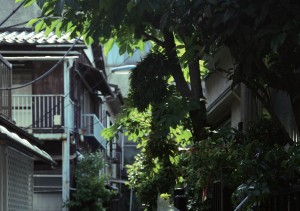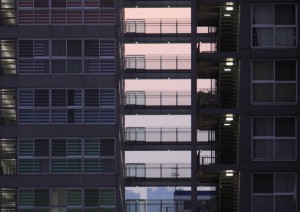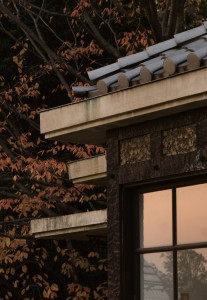If the thought of a 35-year loan to pay for the purchase of your very own house in Japan gives you the shivers, you might want to consider looking into keibai bukken (foreclosed properties). These properties make it possible to purchase a home at a great price—houses regularly sell at half their market value or less.
Keibai bukken are the seized assets of companies and individuals who have gone bankrupt. At every local court there is an office which deals with the auctioning of these properties. The court produces a file about each property, which includes a comprehensive report by a local real estate agent detailing the condition and value of the place with photos and maps. The files on a given property are available for anyone to view for a period of four to six weeks. Those who wish to bid on a property must then fill out the application form and pay a deposit of around 10 percent of the value. In the event that your bid wins, this money goes towards payment. If you lose, the money is returned. If you win and are then unable to come up with the funds within a given time frame, you must forfeit your deposit.
The bids are sealed and read out one by one on a set date at the court. From there if you are lucky enough to win and can organize a loan, you can be in your new home within four to six weeks. The court takes two weeks to change names (meigi henko) and finish all the paperwork. Payment goes through after that, and when completed the property is yours.
It sounds easy but there are risks involved and pitfalls to watch out for. As with any auction, it pays to watch what kind of prices the properties go for over a period of time before rushing in and making a bid which may be over or under priced. Once you get a feel for the figures, be aware that more often than not the bid which wins is not a round figure.
 The competition in most cases is made up of local real estate companies which are very astute at estimating the re-sale value of any property. Watch what kind of bids they put in on other properties before making your own bid.
The competition in most cases is made up of local real estate companies which are very astute at estimating the re-sale value of any property. Watch what kind of bids they put in on other properties before making your own bid.
Because the properties involved were seized by the courts, it is very possible that the former owners are not too happy about it. This can be the biggest stumbling block; for example if the previous owners have nowhere else to go, they may still be occupying the property. In such a case the court can issue an order asking them to leave, but in many cases this has little effect. You may have to get the ‘professionals’ in to evict them. It is also possible that the previous owners are no longer living in the house, but have sabotaged the place out of spite. You might not find out about this until it’s too late.
The keys for keibai bukken are held by the lawyers of the bankrupt former owners, and nobody is allowed to view the inside of the property until after the money is paid and the sale has gone through. You have to really like the floor plan to be confident enough that you will like the inside. If, however, you are planning to spend some of the money you saved on renovating, this may not be such a big issue.
Organizing a loan can also be a little complicated depending on your situation. Banks view keibai bukken differently to ordinary home loans. Often they are willing to lend the money for the property, but are very hesitant to lend extra for renovations. The lending rate may also differ from that of a normal home loan. If you are seriously considering buying a keibai bukken, get your financing arranged well in advance so you know where you stand before putting down a deposit.
What kinds of properties are available? Basically, any property which has been used as collateral, such as car parks, shops, office space, and houses. It may be something you would like to consider if you were opening your own English school, for example. Houses tend to fall into two categories at either end of the scale: the ones seized from people on very low incomes who were unable to pay their city taxes, and the grand houses of company presidents.
The whole process of keibai bukken is still quite unknown and little used by regular people looking to buy a house (it is mainly used by realtors). But why not buy your house for a reasonable sum, rather than paying what agents ask after they have cleaned a place and put in new tatami? You could save enough money to make your new place into your dream home.
There is a foreclosed property website available in English (www.foreclosedjapan.com), and if you are proficient in Japanese you will find others with extensive information on properties throughout Japan. Prices depend on a range of things, including distances from train lines. Naturally, prices are higher the closer you are to a station. The extra research—along with the additional risk factors—may still be worth the effort if you can secure a property that can be turned into the place of your dreams. Certainly it may not be everyone’s ideal way of finding a new home, but the cost-saving may make it worthwhile for some.
For further information contact Magellan at [email protected] or 03-3769-5511.









